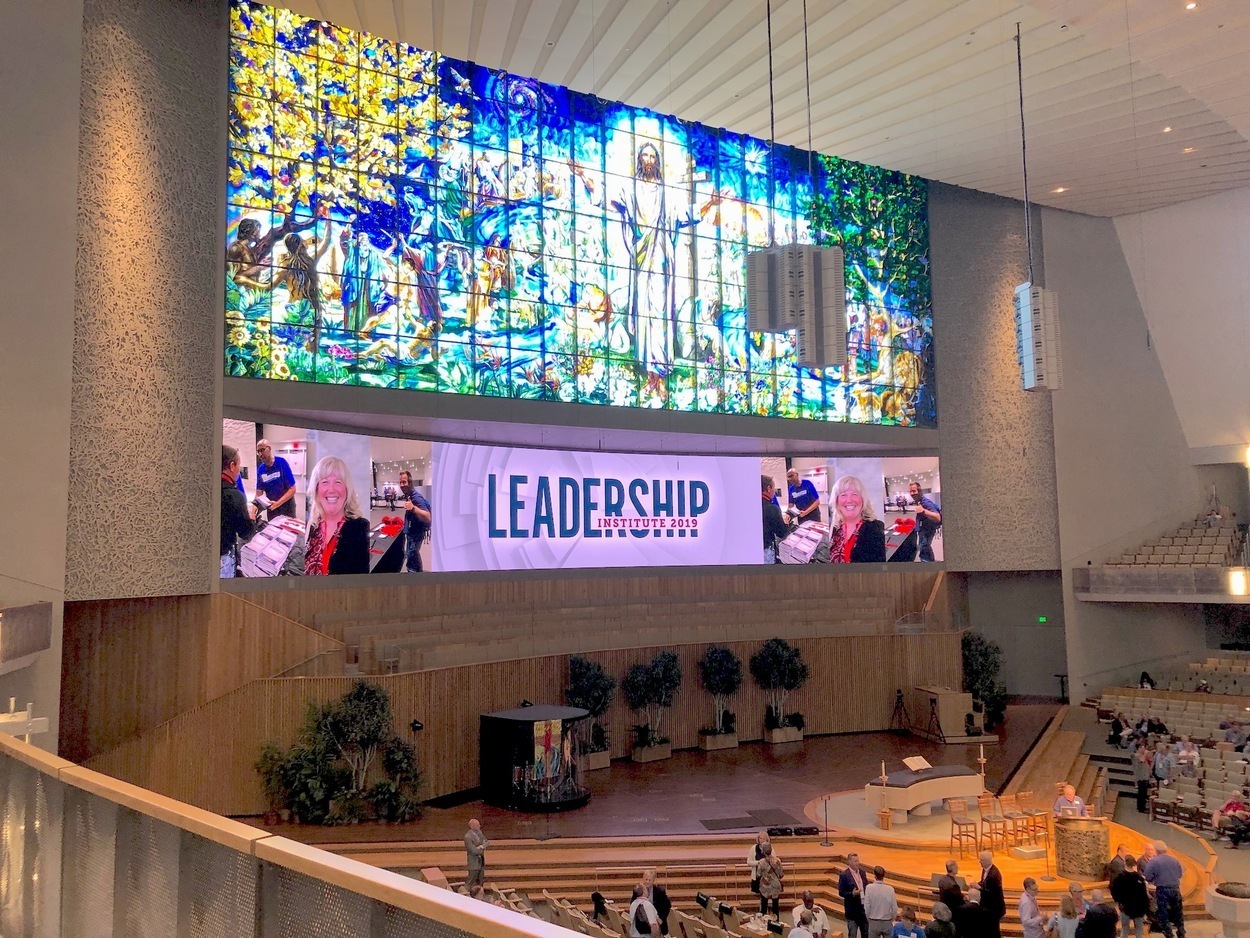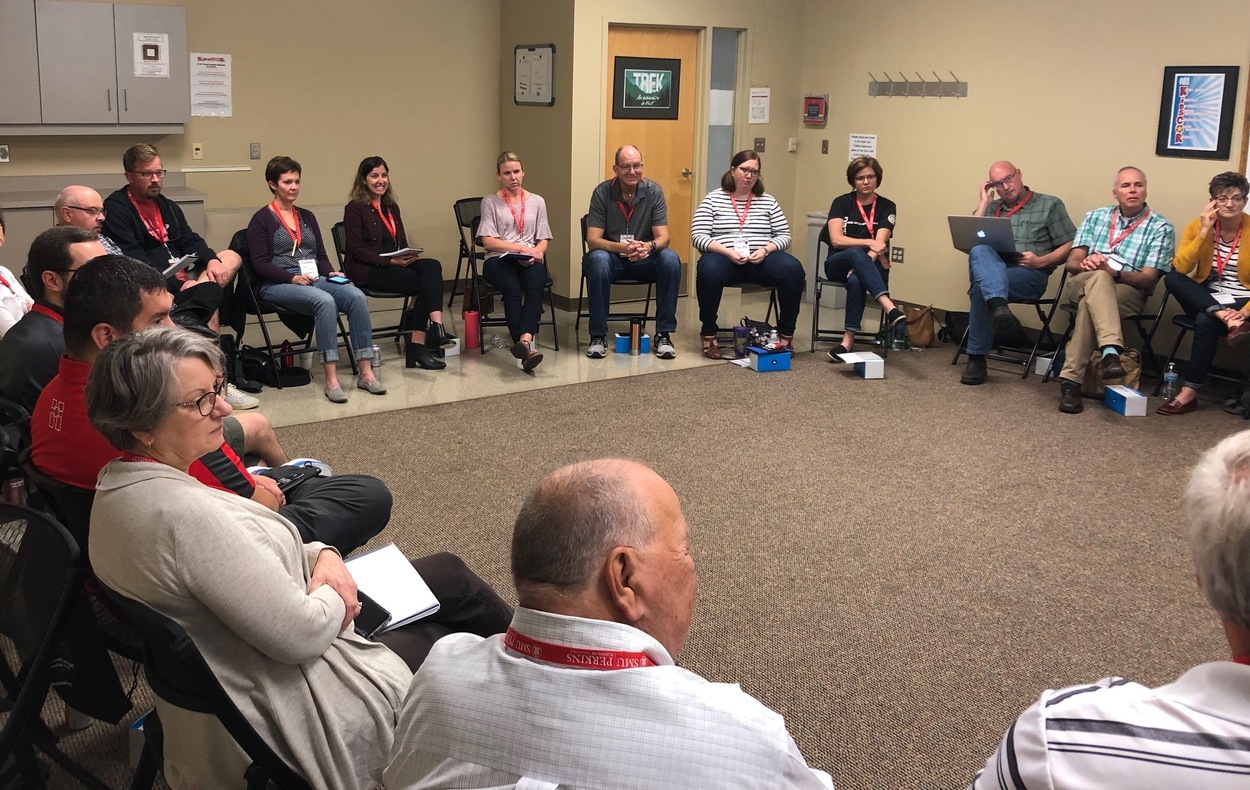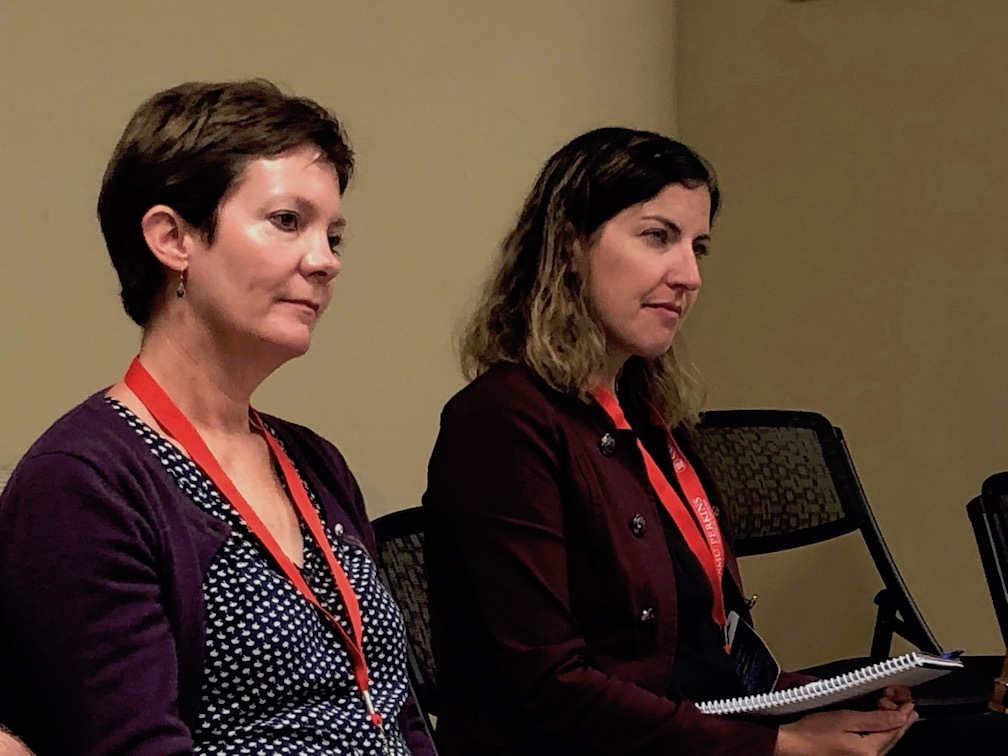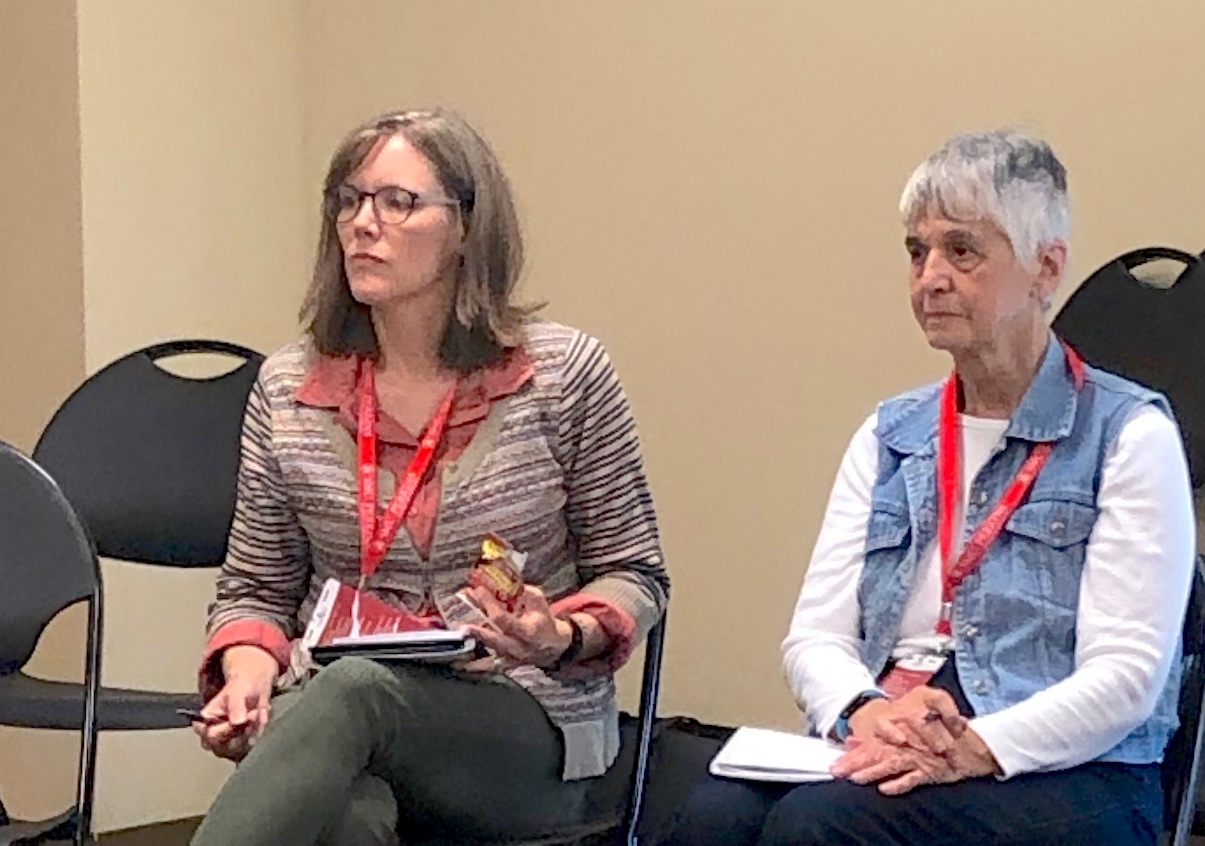
Leadership Institute focuses on next steps for UMC

The newly finished chancel at the United Methodist Church of the Resurrection in Leawood, KS during the Leadership Institute 2019. Photos from Eric VanMeter, DWU.
“You cannot solve your problem at the same level of consciousness that you created it.”
So said David Brooks, New York Times columnist and featured speaker at the COR Leadership Institute held Sept. 25-27, in evaluating the current divisions in the United Methodist Church.
About 2500 pastors and lay people from across the globe gathered at the Church of the Resurrection (COR) in Leawood, KS, for Leadership Institute 2019. This year, the annual training event set aside its typical broad outreach to church leaders to focus specifically on United Methodist issues—namely, the fight over full inclusion of LGBTQ+ persons in the life of the denomination.
Brooks is no stranger to conflict, thanks to his work as a political commentator. He confessed some surprise, however, at United Methodists being at such odds over questions of human sexuality.
“In the broader culture, this argument is over,” he said. “It’s interesting to see it alive here.”

A discussion group of United Methodists from the Dakotas Conference grappled with the issues during the Leadership Institute 2019.
In his opinion, the path to a better future for the UMC—and for American culture at large—lies in acknowledging our hyper-pluralistic society, but committing to truly see and listen to one another despite the difficulty.
This call to seeing and to listening was echoed by other speakers, including several UM bishops and Rev. Adam Hamilton, senior pastor at COR. In Hamilton’s view, the UMC’s failure to see and fully include LGBTQ+ people has violated our first general rule of doing no harm. But, he cautioned, progressives also have a responsibility to see and listen to traditionalists who affirm the exclusionary language approved by the special General Conference in St. Louis in February.
Jen Larsen, lay person from Sioux Falls First UMC who led the breakout discussion for the 28 Dakotans at Leadership Institute, agreed with Hamilton.

Lay person Jen Larsen (left), and Rev. Sara Nelson during group discussion at the Leadership Institute 2019.
“My message to people about these conversations—regardless of where they’re at in the spectrum—is that we all agree that we love all people,” she said. “We never want to get to the point where we are imposing on anybody else our thoughts, so we will continue to welcome differing ideas and opinions on LGBTQ matters. We want everyone to know we value their opinions and conversations.”
Still, most of those at the COR event made no secret about their support for full inclusion, despite the current language in the Discipline. Hamilton related his own journey toward becoming an advocate for ordaining LGBTQ+ persons as pastors.
Other presentations walked through United Methodism’s past participation in discriminatory practices against women and minorities, suggesting that the time had come to once again open the doors to inclusion wider than they have been historically.
The next steps toward such openness, however, present significant hurdles. The traditionalist platform adopted by groups such as the Wesleyan Covenant Association and many central conferences is not compatible with the hopes of progressive leaders. Leadership Institute devoted an entire session to plans for separation of the conservative and progressive factions within the UMC.
Rev. Tom Berlin, pastor of Floris UMC in Herndon, VA, and the author of the One Church Plan that was defeated in the last General Conference, and Rev. John Stephens each presented proposals that will go before the GC 2020. The “Indianapolis Plan” presented by Stephens was the product of conversations between centrist/progressives and WCA representatives, including Keith Boyett. Both plans called for a separation while allowing for continued cooperation between the resulting denominations.
Participants from the Dakotas recognized the tension and uncertainty heading into the next General Conference to be held in Minneapolis in May.

Rev. Michele Slott (left) and Karen Grinager during small group discussions.
“We need to have holy conversations,” Rev. Michele Slott, associate pastor at Rapid City FUMC, said. “There are details that still need to be worked out and communicated if a church decides to leave. People need to understand those full ramifications as well.”
Still, she and other Dakotans at Leadership Institute remained committed to a renewed expression of the Methodist tradition, regardless of what structural changes may come next spring.
“Hope lies where it always has, in God through Jesus Christ,” Slott said. “It lies in respectful listening to one another and calm discourse. It also lies in finally getting to the point where we can see this time in the rear-view mirror, enabling us to more fully dedicate ourselves to other issues of ministry and outreach.”
David Brooks also expressed confidence that better days lie ahead for both the church and the world.
“My long term hope is that people figure things out,” he said.